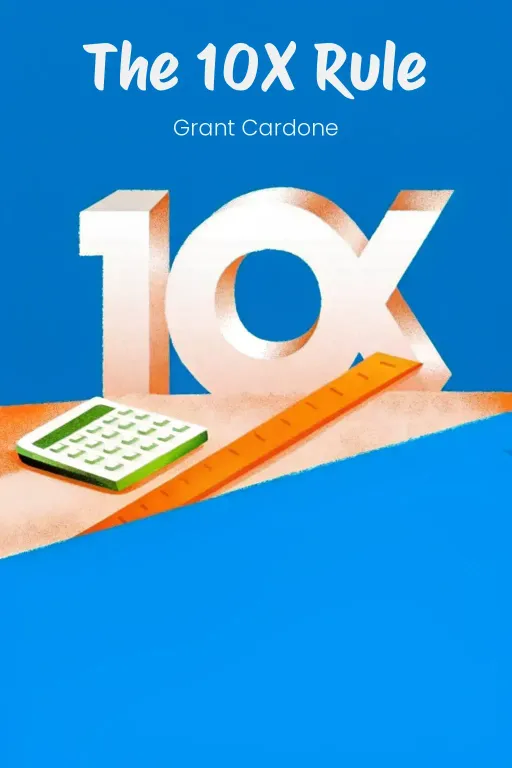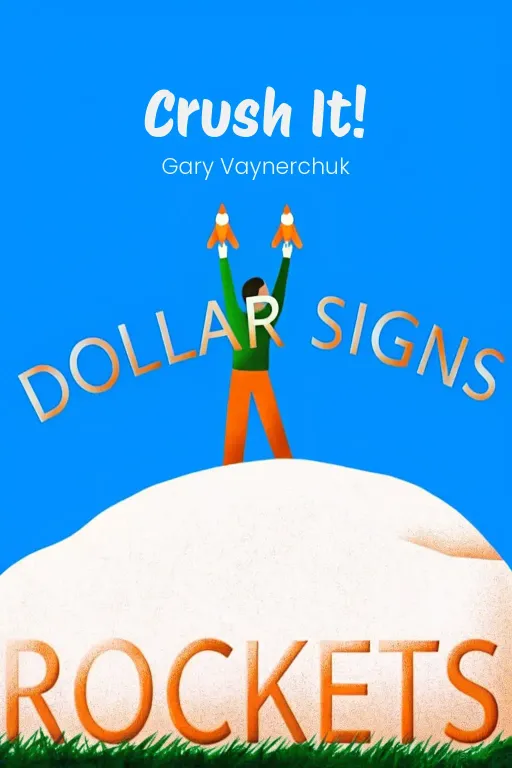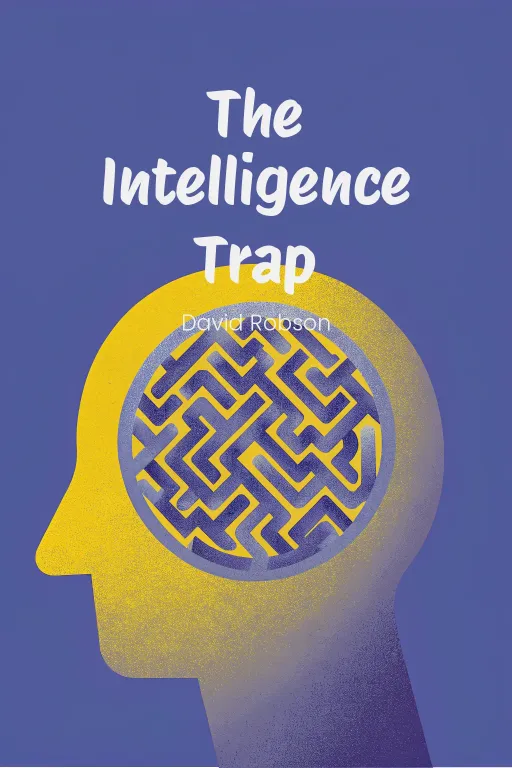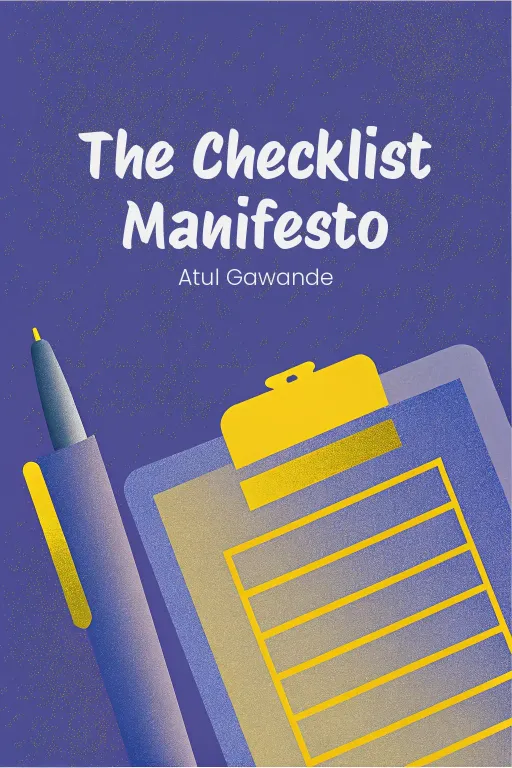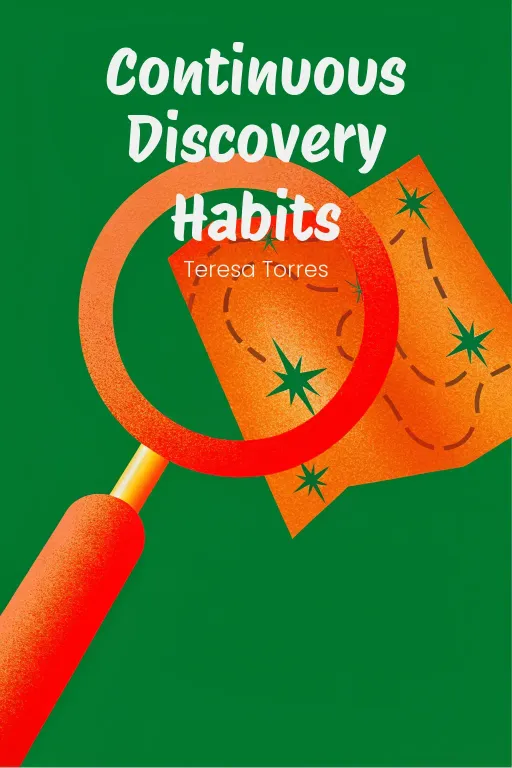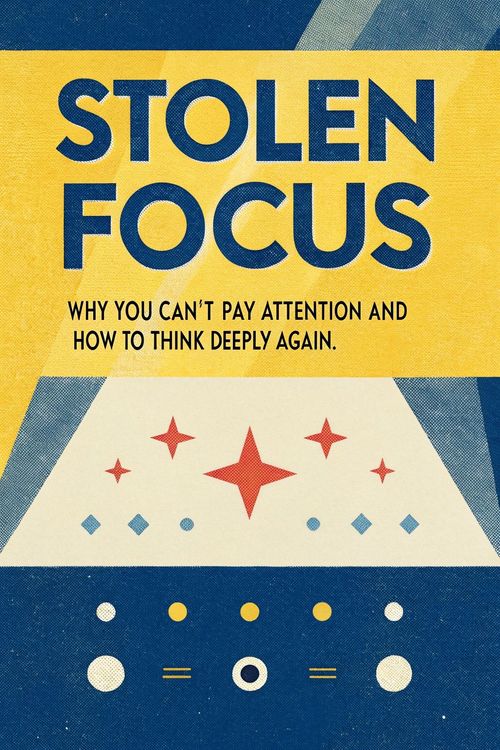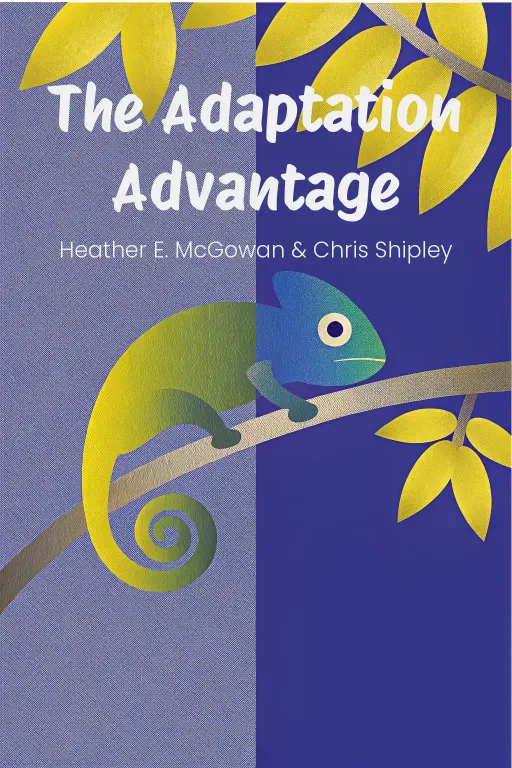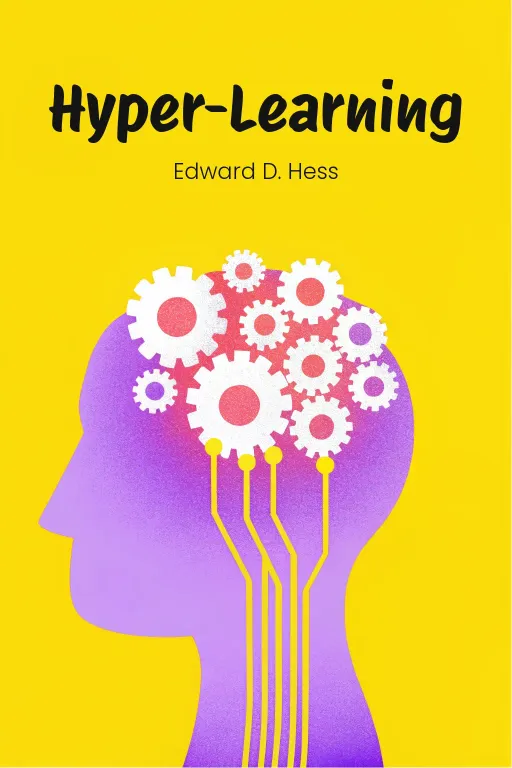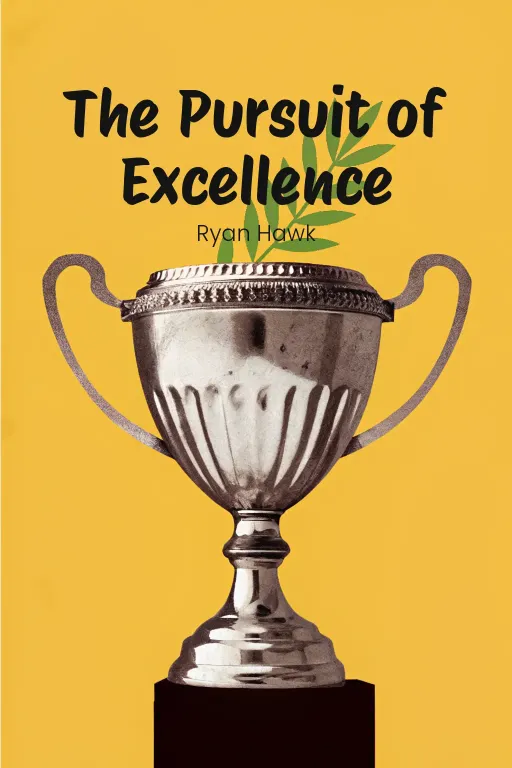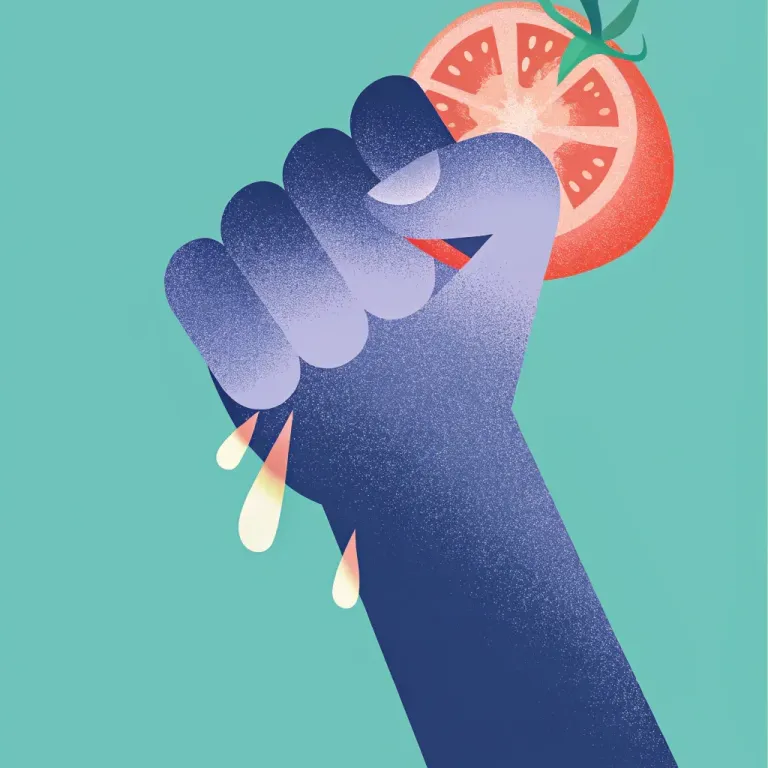
Passion to Profit: Build Your Dream Life
Podcast by Next Level Playbook with Roger and Patricia
Why Now is the Time to Cash in on Your Passion
Introduction
Part 1
Roger: Hey everyone, welcome back! Today we're diving headfirst into a book that promises to, well, turn your world upside down – in a good way, hopefully. Basically, it's a book that might just light a fire under your dreams. Patricia: Okay, so picture this: what if the thing you're totally obsessed with – you know, whether it's baking those perfect croissants, snapping photos that tell stories, or hunting down rare vinyl records – could actually pay the rent? And not just pay it, but actually fuel a real, thriving business? Sounds a bit far-fetched, doesn't it? Well, Gary Vaynerchuk says, "Hold on a second." Roger: Exactly! In his book, “Crush It! Why NOW Is the Time to Cash In on Your Passion”, Gary V invites us to imagine a world where our personal passions collide with entrepreneurial skills. He argues that through the power of social media, anyone can turn their unique interests into real financial success. The key, according to him? Authenticity, relentless hard work, and adapting to the ever-shifting digital landscape we live in. Patricia: So it's not just about chasing the money, right? It's about finding that sweet spot where what you love meets what people actually need – and doing it in a way that feels, dare I say, genuine. But Roger, he's promising a lot here. What exactly are we going to unpack today? Roger: Good point, Patricia. Well today we’re tackling three big ideas: First, how using your passion is the motivation to actually begin. Second, the steps needed to build an authentic personal brand. Third, turning that passion and brand into money, while at the same time creating a lasting legacy. Like going from a little spark to a controlled fire that leaves its mark long after it burns out. Patricia: Spark, fire, legacy – sounds pretty dramatic. But I've got questions. Passion sounds easy, but how about the practical stuff? Hard work is a given, sure, but how realistic are the rewards, really? Let’s get into it!
Passion as the Foundation for Success
Part 2
Roger: Okay, let's dive into the core of what Gary Vaynerchuk talks about in Crush It!—passion. He says it's the fuel for sustained success, the very starting point for any entrepreneur. He keeps stressing how passion is the secret ingredient. It makes hard work feel less like, you know, a slog and more like you're on a mission. Patricia: Hold on there, Roger. “Passion” is such a loaded word now, isn’t it? We're constantly told to "Follow your passion," but most people are just scratching their heads, trying to figure out what that even means. So, what kind of passion are we talking about here? Roger: Good question. Gary’s not talking about those fleeting hobbies that come and go. He means something way deeper. It's something you're so invested in that pouring time and energy into it doesn't feel like a sacrifice—it actually fulfills you. Take his own life, for example. His early fascination with wine wasn’t just about enjoying a glass; he totally immersed himself, learning everything, connecting with customers. He used that love to transform his family’s small liquor store. Patricia: Right, Shopper’s Discount Liquors. He didn’t just give it a face-lift; he blew up sales from $4 million to $50 million a year. Seriously impressive. But wasn’t that timing everything, though? He got into the digital game when the field was wide open. What about someone starting now, with competition at a fever pitch? Roger: It's a fair point. But look at it this way: Gary wasn’t just riding a digital marketing wave—he actually created that wave for his niche. His wine passion made him experiment with email lists and YouTube when everyone else in the industry was ignoring them. Passion gives you that edge because you become obsessed with figuring things out. He saw platforms like Wine Library TV as opportunities to connect with his audience uniquely, not as risks. And because he was truly excited about wine, his authenticity just shined through. And that, I think, is timeless, even in today's crowded digital world. Patricia: Okay, I see where you're going with this—passion as the anchor that keeps you authentic. But, you know, passion alone doesn’t pay the bills. Doesn’t Gary also say that you need hard work to actually turn that passion into something real? Roger: Absolutely. He's super clear that passion without action is just wishful thinking. Passion gives you the fuel, but hard work is the engine that moves you forward. And you can't skimp on work ethic. He didn't just sit back and watch trends unfold; he spent hours producing Wine Library TV, answering comments, and figuring out the ins and outs of these new platforms. It wasn't always glamorous, but it was essential, and because he loved it, all the hard work felt worth it. Patricia: That level of grind—it takes serious emotional strength, doesn't it? Imagine putting out content every single day while juggling everything else! A lot of people would burn out before they ever caught a break. What’s his advice on that? Roger: Well, for Gary, passion is a kind of built-in protection against burnout. When you're genuinely invested, the work energizes you instead of draining you. Still, he's not glossing over the effort involved. He knows it's a marathon, not a sprint. That’s why he says you shouldn't just focus on quick wins like instant fame or money. Instead, think about your legacy—building something bigger than yourself, driven by what truly excites you. Patricia: Legacy. That's an interesting word choice. It definitely adds a long-term perspective. He’s not just saying, "Do what you love for a quick buck." He's saying, "Make it matter, make it last." But here's something else I’ve been wondering—what if someone just doesn’t know what their passion is? Or even worse, what if they think they've found it and then realize it’s just not sustainable? Roger: That's where his practical advice comes in handy. Gary says you need to really dig into your interests. Ask yourself what you could talk about forever, even if you weren't getting paid. And start small! Try a blog, a YouTube channel, even a TikTok. Treat it as a side project at first. Over time, you'll figure out if that passion is real and sustainable or if it was just a phase. Patricia: Okay, but say you have discovered your passion—let's say it’s something offbeat, like making handmade fishing lures. The next challenge is turning it into more than just a hobby. That's when people start to get cold feet. Isn’t there always that nagging fear of, "What if nobody else cares about my thing?" Roger: That's totally valid. And Gary anticipates it. That’s why he harps on the idea of niches. He's saying your passion doesn’t have to resonate with everyone—it just needs to resonate with the right people. So, if you're passionate about fishing lures, your audience is other fishing enthusiasts. You don’t need millions of followers; you need a core group of engaged fans who really value what you're doing. Patricia: Makes sense. A thousand loyal fans are worth more than a million passive ones. And I guess the digital age helps with that—you can find like-minded people pretty much anywhere if you have the right tools. He mentions platforms like YouTube, Instagram, and TikTok as great equalizers for niche interests. But doesn’t it all really come down to building trust with that audience? Roger: Exactly! Trust and authenticity are essential, especially now. Gary says you need to engage honestly with your audience— replying to comments, being real about your struggles, sharing what you know. All that authenticity builds stronger connections and sets the stage for success over the long haul. Patricia: So, to bring it full circle, it all boils down to passion. It's the spark that kicks things off, keeps you going through the tough times, and connects you with your audience in a real way. Gary’s saying—"Love your family. Work super hard. Live your passion"—it's not just a nice quote; it’s a blueprint for success that's actually sustainable and fulfilling. But Roger, I’m still wondering about one thing: is passion really enough in an economy that values speed, change, and short attention spans? Roger: That’s a really important question, and it's one that Gary addresses, too. Passion on its own isn’t a magic bullet; it needs to go hand-in-hand with strategy, effort, and adaptability. And that’s what we’ll explore next, but it always starts here. If passion is driving you, that adaptability just becomes a challenge you welcome rather than something you dread. Are you starting to see everything come together? Patricia: Yeah, I think the picture’s becoming clearer. Passion isn’t just some fluffy concept—it’s the fuel, but the machine itself needs to be well-engineered. The gears of effort, strategy, and adaptability all have to work together. Let's keep digging into this until we see the whole picture.
Building Your Authentic Personal Brand
Part 3
Roger: So, understanding passion naturally leads us to Gary Vaynerchuk's next point: building an authentic personal brand. This is where the real magic happens. It's about taking what you love and turning it into something real and, well, marketable. It’s really about connecting that passion to something practical that resonates with people. Patricia: Right, so passion is the foundation. And now we’re talking about step two – making it tangible, defining yourself, especially online. Gary ties this personal brand idea to authenticity, doesn't he? But where do you even start? “Personal brand" is such an overused term, isn't it? Roger: It is! But Gary actually makes it pretty straightforward. He says your personal brand comes from who you are, what you believe in, what really inspires you. It's about sharing what's natural to you, instead of trying to be someone artificial. Patricia: Okay, no pretending. But will any interest work as a brand? Think about someone like Perez Hilton—he built an empire from celebrity gossip. But how easy is that to copy, really? Roger: That's a great example, and an important point. Perez Hilton succeeded because he didn’t just repeat what everyone else was saying; he added his own humor, his own opinions, his own love for pop culture. Heather Cocks from "Go Fug Yourself" also did this, using her passion for fashion to create engaging, witty commentary on celebrity style. So the lesson is, don't copy them. Instead, take what’s uniquely you and share that. Gary says authenticity, not imitation, is what gives a brand real staying power. Patricia: Okay, I see the pattern. Your identity is the base, your passion is the glue holding it all together. But "authenticity”… it's another buzzword. What does it actually mean? Roger: It means being yourself in everything you do for your brand. Gary says that audiences today are very good at spotting fakes. They value transparency, vulnerability, and feeling connected. So, instead of trying to be perfect, show your flaws, share your ups and downs, and weave them into your story. That's how you truly connect. Patricia: That’s actually refreshing—moving away from perfection. And Gary doesn't just talk; he shows it too. Wine Library TV wasn’t some fancy production; it was him, a camera, and relatable, quirky storytelling. Roger: Exactly! Storytelling is what really brings a brand to life. Gary didn't just review wine; he shared his own journey, his learning process, his real reactions. He made it personal, not polished. Patricia: Storytelling, got it. But can being vulnerable backfire? What if you share too much? Roger: Good point! Gary knows that vulnerability needs to be strategic. You're not sharing every personal problem, but choosing moments that align with your values and message. For example, a story about overcoming creative challenges can inspire your audience and show your expertise. You're being human, but with purpose. Patricia: Right. Focused vulnerability – not a therapy session for everyone. So, you’ve got your identity, your stories… what next? Do you just post everywhere? Roger: Not quite. This is where Gary talks about platform-specific strategy. He says choosing the right digital spaces is crucial. It's not about being everywhere, but about being where your audience already is, and using each platform’s strengths to get your message out. Patricia: So, no scattergun approach—interesting. How do you actually choose a platform? Roger: Think about the type of content you create, and where your audience spends their time. If you’re very visual, Instagram and TikTok could be great. If you want to build a community, Facebook or even LinkedIn are better. And Gary always says, use platform data – like YouTube Analytics or Facebook Insights – to see where your message is really getting through. Patricia: Makes sense. But analytics… that's where most people give up. He suggests tools to make it easier, right? Roger: Absolutely. He mentions tools like Ping.fm, for posting content across platforms, and TubeMogul, for easier video distribution. For individual creators, tools like these are essential. They save you time so you can focus on your message. Patricia: Okay, I like the sound of that. But even with tools, platforms change all the time. Algorithms evolve, trends disappear. How do you stay “you” while also adapting? Roger: That’s where Gary circles back to humility and transparency. He says to interact with your audience directly – respond to comments, join discussions, listen to feedback. The more you listen and adapt, while staying true to your core values, the more trust you build. That trust is what allows you to get through any platform changes. Patricia: That Domino’s case study really shows that, doesn't it? They turned a PR disaster into a chance to be authentic, by admitting their mistakes and promising to do better. Roger: Exactly! It shows that being transparent isn't just about showing off your successes. Being honest about your mistakes can actually build more trust. And that applies to individual creators, too. Being open about your journey, including the hard parts, makes your brand relatable and human. Patricia: So… define your passion, craft your story, choose your platform, engage authentically, and be humble. It’s practical, but it also needs consistency and patience. It's not about instant fame. Roger: Exactly. It's a long-term thing. Gary puts it beautifully: If you do this with passion, dedication, and focus on the community, you’re not just building a brand—you’re building something that lasts.
Monetization and Long-Term Legacy
Part 4
Roger: So, once you've built a solid personal brand, the next step is really about turning that into something you can live off of, right? Monetizing your passion online and creating lasting revenue streams. We're talking about the culmination of Gary Vaynerchuk’s whole philosophy: how the practical side of entrepreneurship meets the bigger goal of leaving a real mark on the world. Patricia: Okay, so we're getting down to brass tacks here. Passion gets you started. A genuine personal brand builds connections. Now, how do you actually make money from all of that while still thinking about the long game, about your legacy? Because let's be honest, this is where a lot of people get stuck. Roger: Exactly. Gary’s pretty clear that passion and authenticity are just the starting point. You need a real strategy to make it sustainable. One of the most direct ways he talks about is through advertising partnerships. Patricia: Advertising, yeah, obvious… but it can be tricky, right? I mean, who hasn’t seen a website overloaded with ads for everything under the sun? Doesn't that risk turning off the audience you worked so hard to attract? Roger: It definitely can, and Gary actually warns against that. He says to be careful about relying too much on things like Google AdSense, which can really clutter things up and dilute your message. Instead, he suggests building direct advertising partnerships with brands that genuinely fit your niche. Patricia: Direct partnerships... sounds like a tall order, especially when you’re starting out. Cold-calling companies, trying to pitch yourself? Does anyone really want to do that? Roger: I get it. Cold-calling sounds intimidating. But Gary would say it's about offering value. If you have a gardening blog or YouTube channel, you're not just asking a tool company for money. You're giving them direct access to their ideal customers. People already trust your content, so that trust naturally extends to the products you recommend. Patricia: Okay, fair point. Say you actually get up the nerve to make that pitch. Isn't there still a huge fear of rejection? And where do you even start the conversation? Do you have to sound like some slick marketing executive? Roger: Not at all! Gary would say keep it genuine and simple. Show that you understand their goals and their customers, and focus on how your audience aligns with theirs. Basically, show them why working with you is a win-win. And confidence comes with practice, right? Patricia: Noted. Targeted partnerships are key. But what if you're not quite ready for that level of negotiation? What about something simpler, like affiliate marketing? Gary talks about that too, doesn’t he? Roger: Definitely. Affiliate marketing is one of the easiest ways to dip your toes in. It's basically a referral system where you earn a commission for promoting products you believe in. The key is authenticity. If you run a fitness blog, you promote brands that fit your audience—yoga mats, protein shakes, whatever. You add referral links to your content, and boom, revenue stream without alienating anyone. Patricia: That makes sense. Low-risk, and it can scale. And speaking of scaling, what about public speaking? Gary seems to push that one as well. Roger: Public speaking is great for building credibility and making money. Gary suggests starting small – free talks at community events or schools to get your name out there and practice your skills. As you get better known, those turn into paid gigs, workshops, panel discussions. And every speaking engagement is a chance to promote your personal brand. Patricia: Sounds like a snowball effect. You start small, build trust, and next thing you know you're headlining major conferences. But what if public speaking just isn't your thing? Roger: Then you can look at product launches. Gary suggests using your personal brand to create and sell products or services that are directly related to your niche. So a fitness blogger could sell e-books, workout plans, even branded gym gear. It diversifies your income and strengthens your connection with your audience by offering something tangible. Patricia: Okay. But creating products or consulting services takes time and effort, right? What’s Gary’s advice on when to make that leap? Roger: He's all about scaling gradually. Start with smaller, manageable products, like an e-book or a guide, and use the profits to fund bigger projects. If you're getting into consulting, offer free advice at first to build trust and a client base before charging for your services. Patricia: Crawl, walk, run. Got it. Here's a bigger question though: even if you do turn your passion into profit, how do you make sure it lasts? A lot of creators peak and then disappear. What’s the secret to staying relevant? Roger: It all comes down to engagement and adaptability. Gary stresses that you need to have an active, two-way conversation with your audience. Respond to comments, tailor your content based on feedback, and always be experimenting with new platforms and formats to keep things fresh. Patricia: Engagement and adaptability... easier said than done, right? Okay, let me ask you this: why does Gary keep coming back to this idea of passion as the foundation for everything? Why not just chase trends or look for quick wins to stay ahead? Roger: Because trends fade, but passion lasts. It keeps you motivated through the inevitable ups and downs. And, people respond to authenticity. Businesses built on genuine enthusiasm and expertise build trust and loyalty, which translates to long-term success. Patricia: And legacy. We're back to the big picture. Legacy seems to be Gary's ultimate answer to the "Why" behind all this. Roger: Exactly. Financial success is just one part of it. Gary believes the real reward of entrepreneurship is the legacy you create – the trust you build, the lives you touch, and the impact you leave behind. Patricia: Alright, so this is what elevates it beyond just a get-rich-quick scheme. Passion fuels you, authenticity sustains you, and legacy gives it all meaning. I think we're starting to see the whole picture come together.
Conclusion
Part 5
Roger: Alright, so, to sum things up, we’ve unpacked Gary Vaynerchuk’s strategy for turning what you love into, you know, a real income and a lasting legacy. We started with passion, right? The thing that actually gets you out of bed, the fuel that keeps you going when things get tough, 'cause they will. Patricia: Exactly. Then we dove into authenticity, which, let's be honest, is kind of a buzzword these days. But Gary’s take is really about amplifying who you actually are. Using storytelling, being vulnerable, connecting with people on a real level, so it resonates, you know, with your audience. Roger: Right, right. And then we looked at the money stuff, monetization, but with a long-term view. Strategic partnerships, affiliate marketing, creating your own products, building a community… it’s all part of the puzzle. It’s not just about making a quick buck; it’s about building something that lasts, both financially and in terms of the impact you have. Patricia: And the thing that ties it all together? Legacy. As Gary constantly emphasizes, it's not just about making a living. It's about leaving your mark, right? Roger: Yeah, definitely. So, here's something to think about: Passion is the starting point, sure, but it’s really about aligning who you are, what you’re truly passionate about, and how you’re showing up for other people, consistently. That's what keeps the fire going. So, ask yourself—what kind of legacy do you want to build? Patricia: And, more importantly, are you willing to put in the actual work to make it a reality? Something to consider. Stay curious, stay passionate, and keep building authentically. Cheers!

